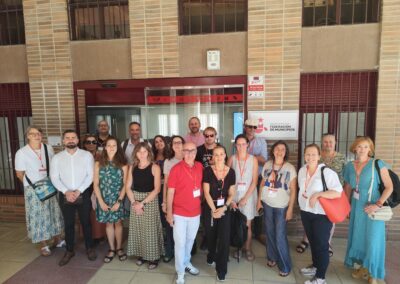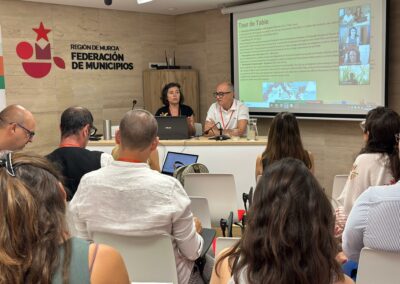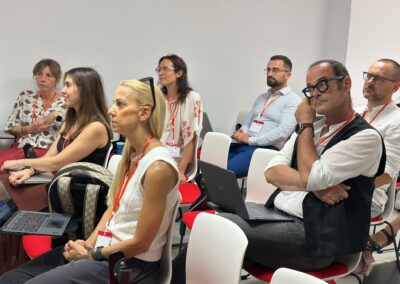The participants of the project that will address the consequences and solutions to deal with extreme heat in the Mediterranean area meet at the Federation of Municipalities of the Region of Murcia
Heatsafe is the new project led by the FMRM, focused as other programs funded by the European Union in which it participates, on adaptation to climate change.
On this occasion, it is a project of the Euro-MED program, with a duration of 33 months, and with a partnership composed of 9 partners in the Mediterranean area, among which are organizations from Barcelona, Greece, Bulgaria, Albania, Italy, and Murcia, being these, the Federation of Municipalities of the Region of Murcia, and Eurovértice.
The professionals from the different international institutions that make up this team have met for the first time at the Federation of Municipalities to hold a coordination meeting and set the rules and steps to be followed in the project.
The main objective of HEATSAFE is to improve the prevention, mitigation and management of risks arising from climate change and the increase in the frequency and intensity of extreme heat and heat waves in the Mediterranean through the joint design of local action plans, and the implementation of demonstrative pilot actions, which will lay the groundwork for the development of open source tools to assess heat vulnerability and a long-term strategy that will set the path for the entire MED area.
This project, in addition to the development of an innovative methodology and the inclusion of socioeconomic factors in the heat vulnerability maps to ensure tailored solutions, prioritizing the most vulnerable groups, will develop pilot actions in different areas, being Cartagena the city chosen for such action in the region.
Some of these actions will be the creation and reinforcement of climate shelters as safe spaces against heat waves, the implementation of immediate response solutions aimed at mitigating the effects of high temperatures in critical situations, such as flexible and temporary shading systems, fountains, sprinkling mechanisms, solidarity networks to increase the frequency of monitoring of vulnerable people, etc., as well as the development of awareness and education campaigns aimed at increasing public awareness of thermal risks and ways to protect themselves from them.
The partners of this project have been able to experience first-hand the high temperatures in the Region of Murcia, specifically in the capital, since their stay has coincided with the hottest June on record, according to meteorological sources, reaching 39 degrees.





